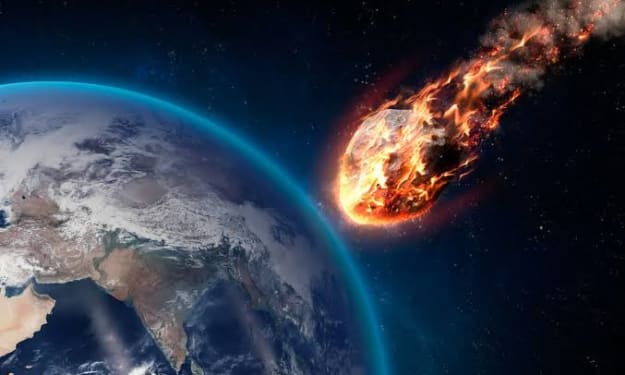Exploring the Infinite Realms of Reality: The Multiverse Theory
Discovering the Possibility of Endless Universes Beyond Our Own

The multiverse theory is a fascinating concept that suggests that our universe is just one of many, possibly an infinite number of universes that exist. The idea of a multiverse has captivated scientists, philosophers, and science fiction writers alike for decades, and it remains one of the most intriguing and controversial theories in the field of physics.
The concept of the multiverse first emerged in the early 20th century, but it wasn't until the late 20th century that scientists began to seriously consider the possibility of a multiverse. The theory was inspired by developments in physics, such as the theory of inflation, which suggests that our universe underwent a period of exponential expansion in the first fractions of a second after the Big Bang. According to this theory, this rapid expansion could have created multiple "bubbles" of space-time, each of which could have evolved into a separate universe.
This mind blowing theory states that there are an infinite number of universes, each with its own unique set of physical laws and properties. This idea stems from the observation that our own universe appears to be fine-tuned for life, with just the right balance of physical constants such as the speed of light and the strength of gravity to allow for the existence of stars, planets, and ultimately, life as we know it. If these constants were just slightly different, it is likely that life as we know it would not exist.
The multiverse theory offers a solution to this paradox by suggesting that there may be an infinite number of universes, each with its own unique set of physical laws, and that we just happen to live in the one that is suitable for life. This means that in some other universes, the physical constants may be different, leading to vastly different outcomes and possibilities.
One of the most intriguing aspects of the multiverse theory is that it offers a possible explanation for some of the mysteries of our own universe, such as why the physical constants that govern our universe seem to be finely tuned for life to exist. In a multiverse, it is possible that different universes have different physical constants, meaning that life could exist in some universes, but not in others.
A key pieces of evidence for the multiverse theory is the observation of cosmic inflation, which is the idea that the universe rapidly expanded in the first fraction of a second after the Big Bang. According to this theory, inflation could have created many "bubbles" or parallel universes, each with different physical constants and laws of nature.
Another piece of evidence for the multiverse theory is the string theory, which is a leading candidate for a theory of everything that unifies all the fundamental forces of nature. String theory predicts the existence of many parallel universes, each with its own unique physical properties.
It could potentially offer an explanation for the "many-worlds" interpretation of quantum mechanics, which suggests that every time a quantum particle has multiple possible outcomes, all of these outcomes occur in separate universes. This idea has been hotly debated by physicists, but if the multiverse theory is true, it would provide a framework for understanding the many-worlds interpretation.
Despite the intriguing possibilities offered by the multiverse theory, it remains one of the most controversial ideas in physics. Some scientists argue that the theory is not falsifiable, meaning that there is no way to test or prove it. Others argue that the theory is based on speculative and untested ideas, and that there is no evidence to support it.
The multiverse theory continues to captivate scientists, philosophers, and science fiction writers alike. Whether or not the theory is true, it offers a fascinating glimpse into the possibilities of the universe, and it raises important questions about the nature of reality and our place in the cosmos.
This theory is a fascinating and intriguing idea that continues to captivate scientists, philosophers, and science fiction writers. Whether or not it is true remains to be seen, but it is a testament to the limitless potential of human imagination and the never-ending quest for knowledge about the universe. Regardless of whether the multiverse exists, the idea itself is a reminder of how much we still have to learn about the cosmos, and how much room there is for further discovery and exploration.
About the Creator
Pepe Magic
Imaginative storyteller Pepe Magic blends humor & inspiration to captivate readers with thought-provoking insights. Join the journey of self-discovery & be prepared to be inspired, entertained & uplifted.






Comments
There are no comments for this story
Be the first to respond and start the conversation.